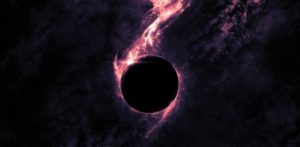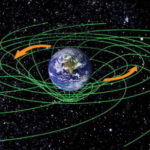Interesting facts about black holes
 Black holes seem to many a sort of funnel in outer space, sucking in itself not only matter, but even sunlight. It would be very frightening, so it’s good, probably, that this popular opinion does not correspond to the truth.
Black holes seem to many a sort of funnel in outer space, sucking in itself not only matter, but even sunlight. It would be very frightening, so it’s good, probably, that this popular opinion does not correspond to the truth.
All the stars of our galaxy revolve around the supermassive black hole located in its center.
The gravity of the black hole is so strong that it attracts even light.
If the Earth turned into a black hole, it would be the size of a small nut.
Black holes evaporate with time.
Nothing, not even light, can leave the neighborhood of a black hole after passing through the horizon of events.
As time approaches the event horizon, time slows down.
The extreme mass of black holes distorts the space around them.
A black hole can become at the end of its life path a star with a mass of about ten solar ones.
Rotating black holes appear as a result of the fusion of two ordinary holes.
One of the black holes located at a distance of 35,000 light years or so rotates around its axis at a speed of just under 1,000 revolutions per second.
Supermassive black holes can have a mass of ten to thirty million solar.
A black hole of four million solar masses can fit in the space between the Sun and the orbit of Mercury).
During the passage of the black hole event horizon, the substance is accelerated to the speed of light.
Black holes generate sounds that astronomers have managed to hear.
The largest known black hole is located in the center of the galaxy NGG 1277, a distance of 228 million light years from Earth.
Since a black hole absorbs light, it can not be seen.
The nearest black hole is about twenty thousand light-years away.
Black holes do not pose a danger to objects that do not approach them too close.
There are double stellar systems in which one of the stars is a black hole.



























